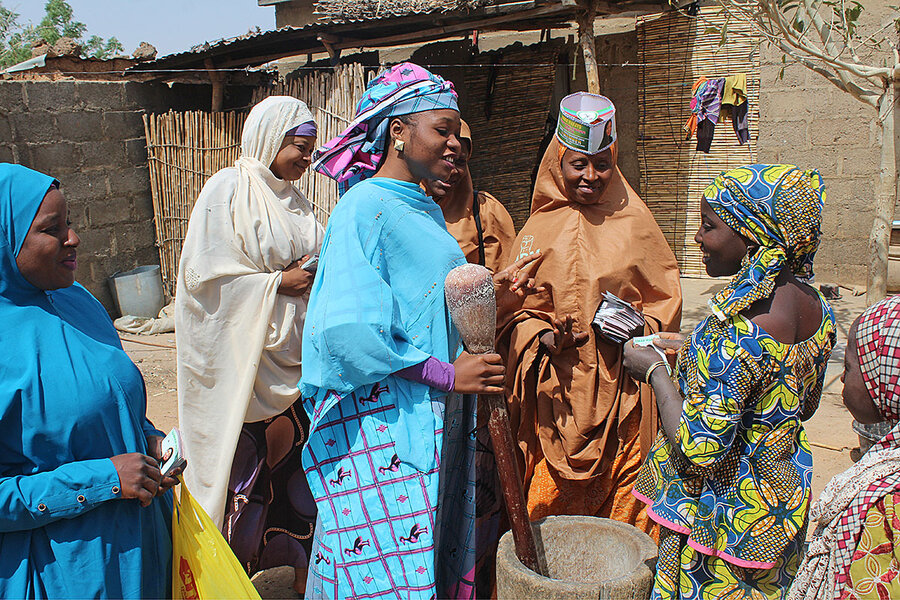Women form an essential part of society; they are equally a tool to the being of all communities. Women are mothers, daughters, sisters, aunties, wives, entrepreneurs, professionals, social activists, and leaders.
However, women have been a subjected entity within society for so long, especially in exercising the legitimate right of citizenship through participation in the acts and deeds of government.
It is, therefore, with no surprise that it comes in this manner; women are seen as household instruments and not sapients able to transmute the dreadful reality of the status quo afflicting the government from different angles in Nigeria.
Their contribution has been less applauded and recognised because they have been less involved in social affairs and governmental planning. Though they remain a vital part of the larger society, they remain ousted in many social contexts, including decision-making and consultations.
This comes as a result of obeisance to some religious doctrines and traditions governing the society, including ideologies restricting women the avenue to speak out in contribution and in tabling any conundrum befalling them.
This has brought about an ill feeling of segregation for women, who mainly conclude their experience as a deprivation of rights and subjugation. It has also brought about the coming together of some women across Nigeria, including men, in joining the global feminism movement, which advocates equal rights between men and women.
Other factors preventing Nigerian women from self-expression include poverty, lack of access to education and healthcare, societal tradition, and gender role stereotypes.
Nigeria is dominated by Christianity and Islam, which, despite neither directly supporting gender discrimination nor marginalisation, provide the societal framework by which many women cannot access support.
Nigerian women are naturally expected to be nurturing mothers, daughters, and sisters, societal roles that leave them in the house caring for children.
This stereotypical role is tied to why many Nigerian men see women as inferior and do not support their participation in government. It is a posed hindrance as it disallows women to take part in what matters in the nation. They remain with no voice because they do not participate in government, and even the few in government find themselves subject to the crowd of men in the government, making it difficult for them to be heard.
It does not help that some top-ranking Nigerian politicians also see their wives and daughters as “weak vessels” belonging only to the kitchen and “the other room”, as immediate past Nigerian president, Muhammadu Buhari, once described his wife when asked about the first lady’s office that he scrapped during his government.
Yet, women continue to prove essential in government across the globe and are sometimes described as more effective than men as leaders. Elen Johnson, former president of Liberia; Angela Merkel, former German chancellor; and Ursula Von Der Leyen, president of the European Commission, are three of many names showing how effective and reformative women can be in government.
But regardless of the position a woman occupies in government, whether as leader or co-chair, she needs the total support of men in the government to be effective. And men should not hold back their support.
While the battle for women’s inclusion in government rages on, women’s voices being over-loud by men is not a situation of incompetence but that of an ideology, religion and tradition that place men over women.
Increasing women’s participation in government through politics is vital in balancing the scale of inclusion. And it should be based on merit, not ideologies or other norms and doctrines.
Women play crucial roles in society as mothers, daughters, sisters, wives, entrepreneurs, and leaders. However, in Nigeria, women's participation in government and societal planning is significantly limited due to historical subjugation, religious doctrines, traditions, and gender stereotypes. These constraints lead to feelings of segregation and deprivation of rights among women, prompting many to join the global feminism movement advocating for gender equality.
Factors such as poverty, lack of education, and societal roles further restrict Nigerian women's self-expression and participation in government. Even women in government face challenges being heard due to male dominance. The notion that women should be confined to household roles persists, reinforced by high-profile figures who view women as inferior.
Despite these barriers, women have proven effective in leadership globally, exemplified by figures like Ellen Johnson Sirleaf, Angela Merkel, and Ursula von der Leyen. To increase women's participation in government, a shift away from ideological and traditional norms towards merit-based inclusion is essential.






